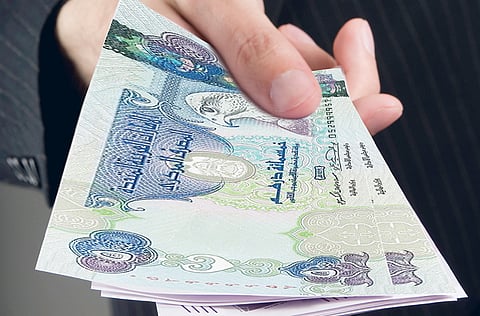How to finish 2013 a richer man
Stick to three simple financial resolutions and you will be amazed at the gains by the end of the year

Most New Year’s resolutions are broken. Personally, I’ve always felt that if you restrict your resolutions to a select few important ones, they are more likely to be kept. Focusing on a few key goals could help change different aspects of your life. When it comes to money, I believe that improving our finances boils down to some basic commitments, irrespective of how poor or wealthy you are today. I have listed three that could give you a jump-start on the road to better financial health. Stay committed to them and you are more than likely to finish 2013 richer than you started it.
1. I will not spend more money than I make
This is the one resolution you cannot break, regardless of who you are or what your income or social standing is. Most personal-finance experts will tell you that on average, people spend about a dirham and 25 fils for every dirham they earn. This is only because most people don’t bother sticking to a spending plan or a budget.
Also most of us tend to use credit as a substitute for money we don’t have. Credit can be tricky because it lulls you into a false sense of security. The result is that you spend more money than you make on things you don’t really need, all because there is a reward attached to that spending.
Creating wealth is not about how much you make, but about how much you save. So someone who makes Dh150,000 a year and manages to save Dh20,000 of that income in a year, is wealthier than the guy who makes Dh2 million, but ends spending Dh3 million, thus creating an additional Dh1 million in debt and liabilities.
Ever wondered how so many celebrities and pro-athletes – all individuals with high incomes – end up bankrupt? Living above your means leads to financial disaster, no matter how big your pay cheque.
Live within your means. This begins with adjusting your budget to account for all your monthly income and expenses. If the latter is greater than the former, you only have three options – make more money, cut expenses or do a combination of both.
2. I will be debt-free in 2013
Pay your smaller debts first and then focus on the larger ones. Finishing the smaller debts quickly can provide you with the positive motivation to tackle the larger ones. Another useful strategy is to focus on the debts charging the highest interest rates and work your way down to the ones with the lowest.
This approach will help you save money on interest payments in the long run. In both cases, as you eliminate each debt, apply those payments to the remaining debt. Ensure that you do not spend on those cards again, or this is just going to become a never-ending cycle.
Regardless of what route you choose, make at least the minimum payments on all outstanding debt, avoiding late fees by paying on time (ideally as soon as you get your salary). Also, any payment agreements you’ve made with a creditor or debt-collection agency should be given priority in your strategy.
3. I will 'pay' myself first
Paying yourself first simply means putting away a percentage of your income (ideally 20 per cent) for long-term savings and investment goals. This payment should be treated like your mortgage, rent, utility or any other bill, paid every month, no matter what. So get used to living on a budget of 80 per cent of your income.
Know what you are paying yourself for. Firstly, you have to accumulate savings equal to at least six months of your annual household budget, to be spent only in case of loss or interruption of income (for example, due to loss of job or an extended illness). Once you have accumulated that amount, put additional self-payments towards long-term goals such as a down payment on a home, capital to start a business, educating your kids and boosting retirement savings.
Keep this money in a separate bank account so that you do not see it or spend it, out of sight is out of mind. Make an automated monthly deduction from your salary account to be transferred to your savings account where you house this money. Good luck!


